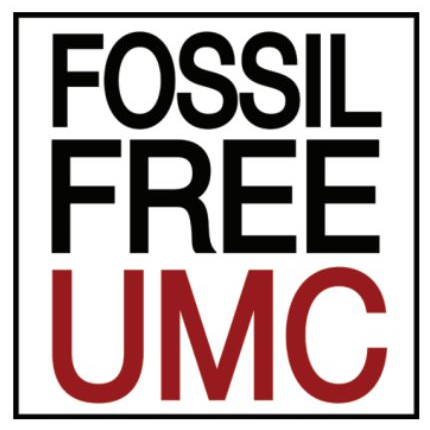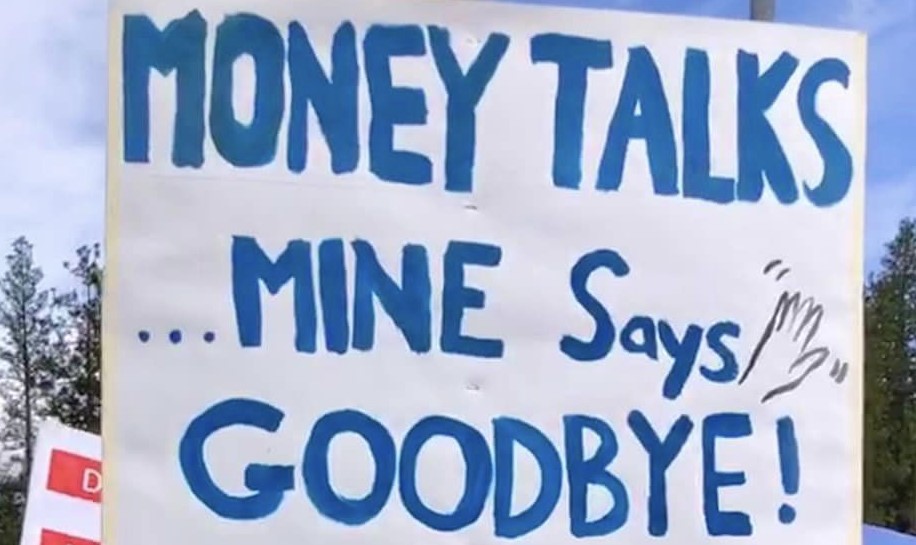“Investing in new fossil fuel infrastructure is moral and economic madness. Such investments will soon be stranded assets — a blot on the landscape and a blight on investment portfolios.” UN Secretary-General, António Guterres
California-Nevada passed a recommendation submitted by the Climate Justice Ministries Task Force at the June Annual Conference Session to identify and begin to reduce fossil fuels from Conference investment portfolios while collaborating with agencies and interested groups on how to move toward divesting from fossil fuels, the primary driver of climate change. This recommendation calls for the Conference Council on Finance and Administration (CF&A) to host a summit “to uphold best practices for investment management,” to “identify sound financial strategies to screen out fossil fuels from our conference investment portfolios,” and to present a report and recommendations to the 2025 Annual Conference. (See full text below.)
There is widespread support for fossil fuel divestment in the California-Nevada Annual Conference, which has voted twice to send petitions to General Conference calling for fossil fuels to be added to United Methodist investment screens. Still, there are practical challenges that need to be considered in the divestment process. This collaborative approach of engagement and consultation on specific strategies for Annual Conference divestment is intended to broaden the conversation and bring more people on board, so that the practical challenges and benefits of fossil fuel divestment (both ethical and financial) will become clear to all. See Five Reasons for Annual Conferences to Divest from Fossil Fuels.)
These conversations about fossil fuel divestment will take place in the context of the reality of harm caused by fossil fuels and fossil fuel companies that are driving us to the brink of and beyond climate tipping points that can never be reversed. By investing in fossil fuels, we contribute to this harm for the sake of financial returns and provide a moral “cover” to fossil fuel companies through our engagement with them. By divesting from fossil fuels, we join forces with the climate justice movement, made up of people around the world who are building the power to accelerate the shift away from fossil fuels. Through divestment, we withdraw our financial and ethical support and make it possible to shift our investments toward goods and services that can us move to a just and clean energy future.
Recommendation on California-Nevada Annual Conference Divestment from Fossil Fuels
Be it resolved that by October 1, 2024, the California-Nevada Annual Conference of The United Methodist Church shall identify all investments in their portfolios whose core business activity involves the production of coal, petroleum, or natural gas (core business activity refers to a company’s primary, or central focus of activity and is an essential element in the company’s economic success. A “core business” is one that accounts for 10% or more of a company’s revenue derived from the objectionable products and/or services), and
Be it further resolved that the California-Nevada Annual Conference of The United Methodist Church shall begin to reduce investments in any company or entity whose core business activity involves the production of coal, petroleum, or natural gas, and to invest instead in products or services that are consistent with United Methodist positions on energy and climate as stated in the Social Principles, and
Be it further resolved that the California-Nevada Annual Conference Council on Finance and Administration host a summit, which could include ongoing consultation and engagement, during the upcoming conference year with members from the following agencies and teams: Conference Board of Pensions, California-Nevada United Methodist Foundation, Conference Claimants’ Endowment Board, Core Team, Climate Justice Ministries Task Force, General Council on Finance and Administration, Wespath, and Fossil Free UMC. The purpose of the summit is to uphold best practices for investment management and to identify sound financial strategies to screen out fossil fuels from our conference investment portfolios. The Conference Council on Finance and Administration will make a report, including recommendations, to the 2025 Annual Conference.
Background to Cal-Nevada Fossil Fuel Divestment Recommendation
“Do to others as you would have them do to you.” Luke 6:31
“First: By doing no harm, by avoiding evil of every kind, especially that which is most generally practiced…” John Wesley, “The General Rules”
In 1980, The United Methodist General Conference as a body passed a resolution on Energy Policy acknowledging the harm caused by fossil fuels. It was the first denomination to call for a just transition away from fossil fuels toward conservation and renewable energy by governments and the church, yet our denomination continues to invest in and profit from coal, oil, and gas. There are many alternative investment funds available that are largely fossil free, including the Social Values Choice funds administered by Wespath. These funds have a five-year history of competitive returns.
In addition to being the primary drivers of climate change, fossil fuels cause tremendous harm in their extraction, transport, and processing. They create “sacrifice zones” by polluting marginalized neighborhoods, regions, and countries, and when burned they cause harm on a scale that threatens human civilization and the community of creation here on Earth. This harm disproportionately impacts the world’s most vulnerable people, who have done the least to cause climate change.
The United Methodist Church’s endorsement of fossil fuel corporations through our investments belies our stated commitment to a transition away from fossil fuels and toward a just and sustainable future. Two decades of corporate engagement and stockholder actions with the world’s largest greenhouse gas producers, including Chevron, Exxon Mobile, and Occidental Petroleum, have failed. Instead of transitioning away from fossil fuels, they are doubling down. Chevron recently boasted that 2023 was their best year for production and profits ever.
These corporations have known since before 1980 that their products would warm the climate and endanger creation, but instead of transitioning to conservation and renewable energy, they created a massive public relations campaign to foster doubt that climate change was real. Their profit-seeking strategies continue today in the form of “greenwashing,” lobbying government for corporate subsidies, and blocking strong climate legislation and international treaties. By continuing to invest and engage with them, we provide moral cover for these corporate “bad actors.” This makes us complicit in knowingly causing unspeakable harm to children, marginalized people, our human family, and the community of all creation, not just now but into the future.
Meanwhile, the global climate justice divestment movement has now grown to over 1,600 institutions with assets totaling over $40 trillion that have divested from fossil fuels. Thirty-five percent of them are churches and other faith communities. In 2023, churches in Scotland, England, and Wales divested, including the Methodist Church of Great Britain and the Church of England. As the first denomination to call for a transition away from fossil fuels, it is ironic that we are so far behind. We can divest from fossil fuel here in Cal-Nevada in hope that in this instance, the first will not be last.
The spiritual and moral reasons for divesting from fossil fuels are clear. The simplest reason, in secular terms, is that “It is wrong to profit from wrecking the planet.”There are also financial reasons to divest. In the past ten years, fossil fuels have underperformed when compared to the overall stock market. Meanwhile, new studies show that portfolios that avoided investments in fossil fuels had higher returns.
Investing is always risky, but investing in fossil fuel stocks will become ever-riskier financially as climate change accelerates. Their value is based on their coal, oil, and methane gas reserves, which cannot all be burned without making the planet uninhabitable. These reserves will become “stranded assets” as the global transition to renewables advances, as renewables continue to gain market ground, as governments develop stronger climate legislation to meet global commitments, as lawsuits against fossil fuel corporations become more common, and as large institutions continue to divest.
California Nevada Annual Conference has been a leader in the movement calling for The United Methodist Church to divest from fossil fuels, in solidarity with the movement for climate justice. In both 2015 and 2023, our Annual Conference passed petitions and submitted them to the General Conferences held in 2016 and 2024. Whatever General Conference decides in 2024 about whether to screen out fossil fuel divestments from United Methodist portfolios [see update here], the global divestment movement will continue to grow and United Methodists will continue to challenge their members, churches, and other institutions to divest. By divesting from fossil fuels as an annual conference, California-Nevada takes a step towards living into our commitments regarding climate change and transitioning toward a just and sustainable clean energy future.


One response to “Cal-Nevada to Host Summit on Fossil Fuel Divestment”
<
div>I wonder about the moral probity of a positi
LikeLike